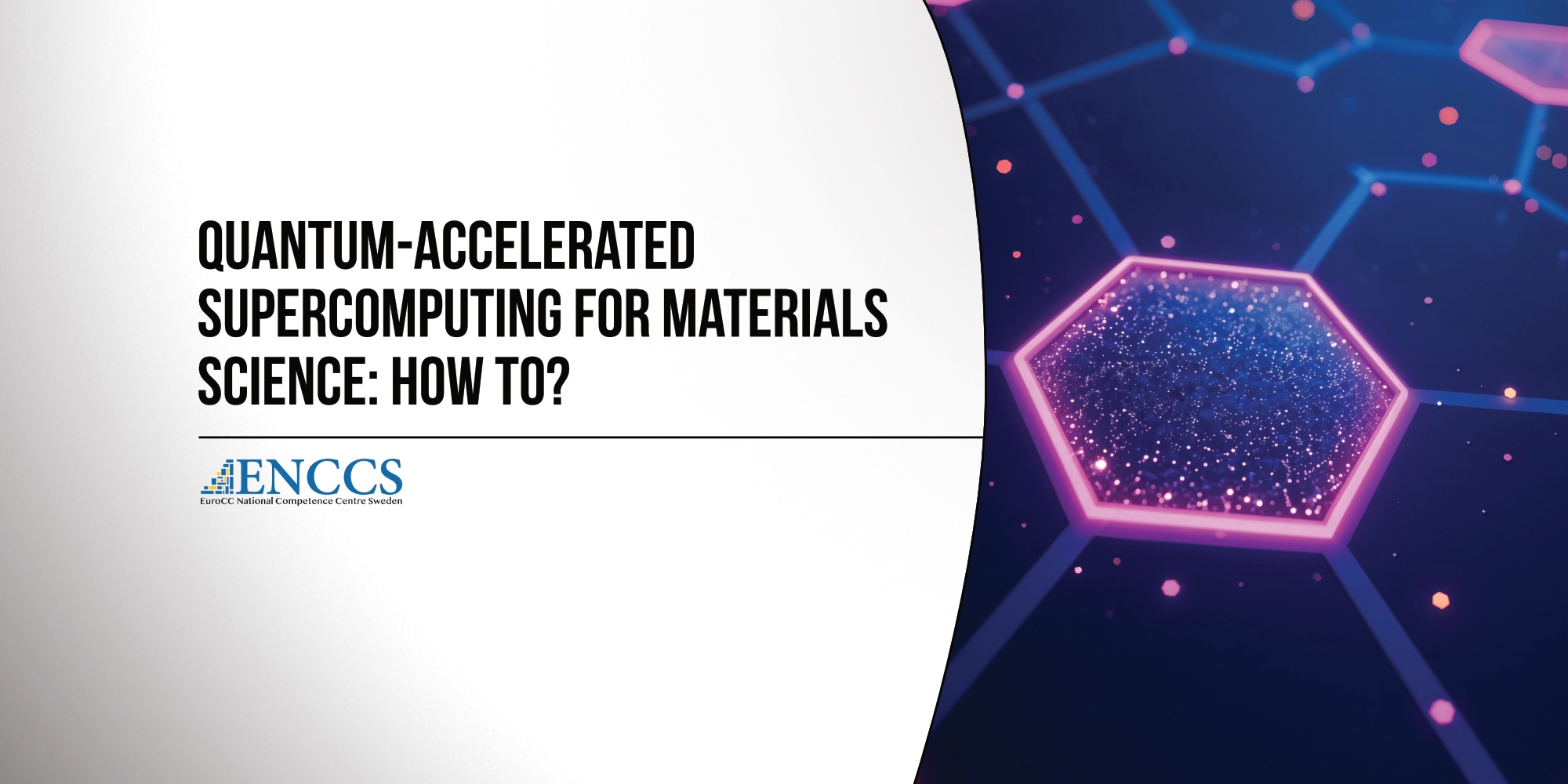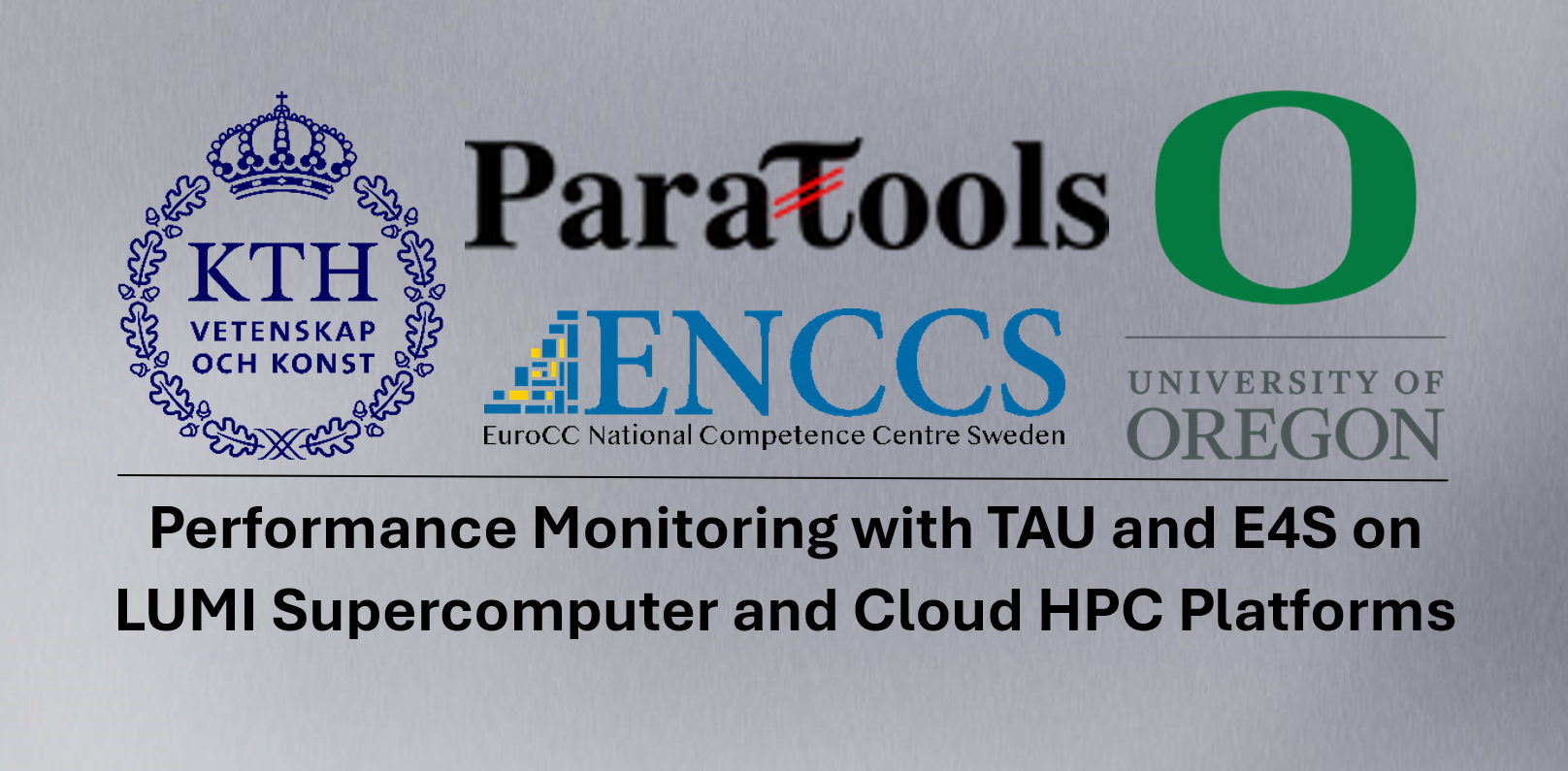ENCCS Training Events
ENCCS offers a wide range of free training events both for industry and academia. The events are prepared by our experts, often in collaboration with other institutes and initiatives within Europe. For any questions regarding our training events please contact us using the button below.

[Date changed] Quantum-Accelerated Supercomputing for Materials Science (Webinar)
About the webinar This webinar introduces quantum-accelerated supercomputing approaches that combine traditional HPC resources with quantum computing accelerators for materials science applications. We'll demonstrate a workflow for studying example problem […]
![nordic-hpc-2025[landscape]](https://media.enccs.se/2025/06/nordic-hpc-2025landscape-scaled.webp)
Nordic HPC Summit 2025
Birger Jarl Hotel Birger Jarlsgatan 61/A, Stockholm, SwedenStrengthening Collaboration, Securing Innovation across Nordic and EU Birger Jarl Hotel, Birger Jarlsgatan 61/A, 113 56 Stockholm, Sweden About the event The NordicHPC Summit 2025 is the leading event in […]

Performance monitoring with TAU and E4S on LUMI and Cloud HPC platforms
Sundblassalen room at RISE offices Drottning Kristinas väg 61, Stockholm, SwedenOverview KTH, ParaTools, the University of Oregon, and ENCCS (EuroCC National Competence Centre Sweden) come together for the organization of this hybrid workshop. The event brings together code developers, researchers, […]

Quantum Autumn School 2025
Sundblassalen room at RISE offices Drottning Kristinas väg 61, Stockholm, SwedenOn-site participation deadline: 22 October About the event Are you ready to dive into the exciting world of quantum computing? In collaboration with our colleagues in EuroCC Denmark and EuroCC […]
Training Events Around Europe
Being part of the EuroCC network allows us to have contact with experts from 33 countries in Europe, as well as their training efforts.
Any person based in Europe can attend these events.








